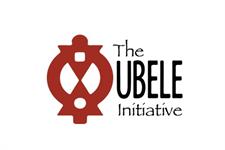Funders should recognise that putting black and minoritised people in certain posts does not necessarily make them anti-racist, according to new research.
A study by The Ubele Initiative looks at the extent to which newfound awareness catalysed by the Black Lives Matter movement and the disproportionate impacts of Covid-19 on minoritised communities led to enduring change in the voluntary, community and social enterprise sector.
Researchers interviewed 16 black and minoritised infrastructure and grassroot organisations and 11 funders, and included responses from black and minoritised community-led infrastructure and grassroot organisations across the UK.
The Booska Paper says that despite last year being one in which the reality of institutional racism came to be acknowledged in ways it never has been before, the second half of 2021 has shown that the UK government was invested in the denial of it.
The report states: “We remain in a context where the argument that racism exists, and is bad, still hasn’t actually been won.
“As unbelievable as that sounds, we see this in the latest Commission on Race and Ethnic Disparities Report, that was in direct response to the Black Lives Matter movement.”
Ubele said the paper aimed to support funders in better equipping themselves to work in the service of equality and justice.
Issues that still need to be addressed include a limited, long-term commitment to substantive racial justice strategies, failure to grasp the effects of institutionalised racism in the funding sector, and design and decision-making processes that continue to reflect unequal power dynamics, according to the report.
It sets out calls to action that include funders moving away from the performative short-term allocation of funds to long-term sustainable investment.
In light of the recent CRED report, funders should recognise that putting black and minoritised people in positions does not automatically equate to being anti-racist.
It says: “The strength of institutional racism is such, they may knowingly go against the interests of their community, in an effort to sustain their own livelihood as an individual by a system that actively supports and rewards them for doing so.”
Intersectionality should also be taken into account, said the researchers, as well as publishing a list of all donors, and a framework created for resubmission where black and minoritised organisations do not receive a successful outcome.
The paper also called for solidarity with organisations such as the charitable think tank the Runnymede Trust, which was forced to defend its own work from a group of Conservative MPs after it criticised the CRED Report.
